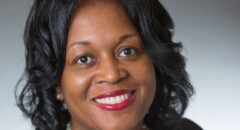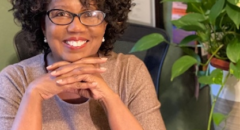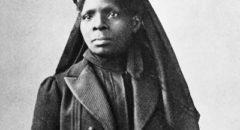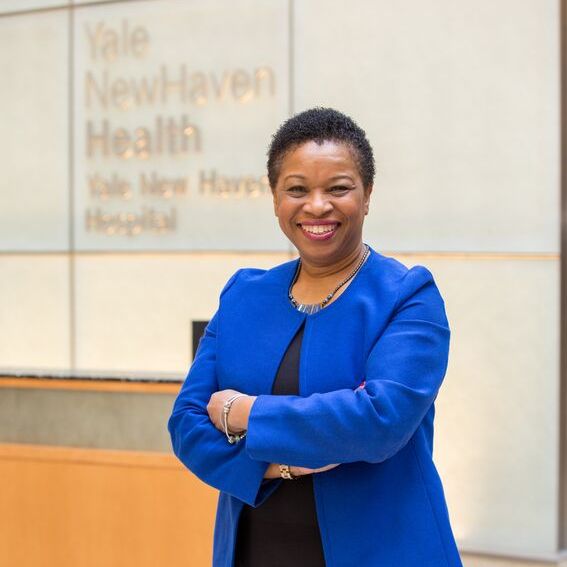
To build healthier communities, there is nothing more powerful than lived experience.
Watch as Ena Williams shares her compelling story here.
Take a moment to think about your experiences. How has your path shaped you? How have your experiences – in your family, in your school, in your community – given you a unique perspective on what people need to live their healthiest, most fulfilling lives?
Today, I am the first Black Chief Nursing Officer at Yale New Haven Healthcare, but long before that, I was the second child and eldest daughter of eleven children growing up in Jamaica. I was a nursing student, and a registered nurse and nurse leader on a small island. I was an immigrant to the United States, a young mother, a busy operating room nurse, and the wife of a minister. Each of my experiences shaped me into the person, the nurse and the leader I am today.
These experiences have also given me unique insight into our healthcare systems, and the fact that many still struggle to ensure equity for all patients. My experiences have affirmed for me time and again that when nurses and clinicians are members of the populations they serve, they can better communicate, engender trust, and advocate for minoritized communities.
I’ll give you an example. Just over a year ago, I accompanied my husband, a recent kidney transplant recipient, to a postoperative appointment where a physician told us that his creatine was higher than normal, but normal for him—a Black man. When I asked other transplant surgeons, they said, “That’s how it is. It’s been that way forever.” However, after some further investigation, it was determined that this was an outdated practice that needed to change.
I’m glad to say since then, our system has eliminated the different standard, but had I not asked, we never would have known. It would have remained the standard, with potential for increasing risk to black men, already at a higher risk for kidney disease.
It’s this experience and many others that underscore how powerful representation is for patients, and why we need more nurses of color in every level of healthcare.
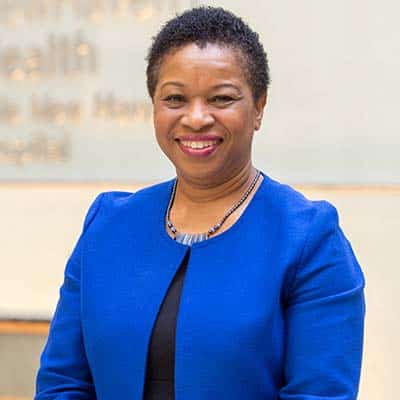
One strategy that we are engaged in at our hospital, is partnering with a university to expose high school juniors and seniors from minority backgrounds to nursing and healthcare. They spend a week at the university campus, learning about college life and preparing for entry. The students are exposed to multiple healthcare situations and simulations with nurses as their coaches. They then spend a week in the hospital shadowing nurses, learning about their roles in multiple hospital settings. Because of this program several students have transitioned into college and are on their way to becoming nurses of the future.
I may be biased, but I believe nursing is still one of the most rewarding careers. As a nurse, you can impact individuals throughout all the phases of life, from birth to transition. You are there for people at their most vulnerable.
That does not mean being a nurse is easy or that there aren’t real challenges. There are still barriers to the profession for many students of color, and many nurses of color still face unacceptable levels of discrimination in the workplace, whether from patients or peers. For everyone from a racial and ethnic minority background who is considering becoming a nurse, know that you are smart, and capable as anyone else, and we need you in the profession to support the advancement of equitable care. For those of you who are already nurses, do not be discouraged, the profession and the patients need you to be part of the ongoing solution of improving care for all.
It is also heartening that many organizations are working to make the profession a more inclusive place for people of color. For example, the American Nurses Association (ANA)’s National Commission to Address Racism in Nursing, created in partnership with the National Black Nurses Association (NBNA), National Coalition of Ethnic Minority Nurse Associations (NCEMNA), and National Association of Hispanic Nurses (NAHN) is an important step in remedying the reality of racism in healthcare. Other organizations such as the American Organization of Nursing Leadership (AONL) have also taken steps to address the issue of diversity in the nursing workforce. I believe that nursing will be central in paving the way for a better, more equitable, and more welcoming future.
To all Black, Brown, and Indigenous nurses and nurse hopefuls reading this: We need you in nursing. You can change the narrative of patient care, improve your community’s health, and be a part of healthcare’s more equitable future. You have the chance to be the nurse or nurse leader that another person looks up to and thinks, “If they can do it, so can I.”
As a nurse, you become part of the largest healthcare workforce in the country. The impact of nurses is immeasurable, and our voices are invaluable. We shape care delivery, policymaking, and patient care, and we can eliminate barriers and ensure better health outcomes for all. Will you join us in this quest to transform healthcare and eliminate disparities in healthcare?
To learn more about a career in nursing, go to nursing.jnj.com.
Sponsored by Johnson & Johnson



